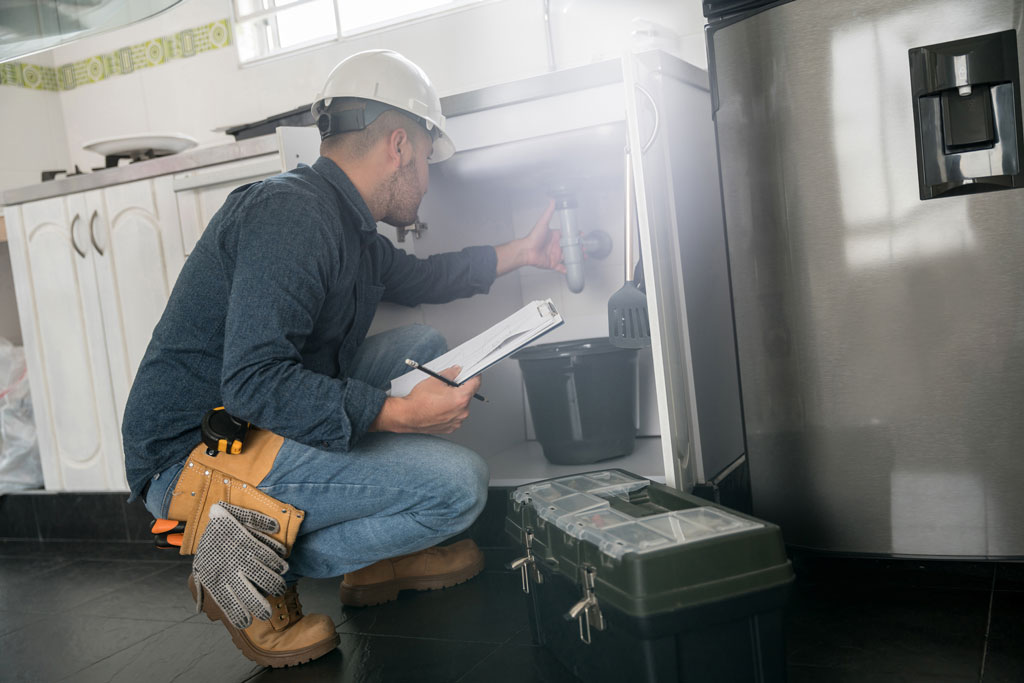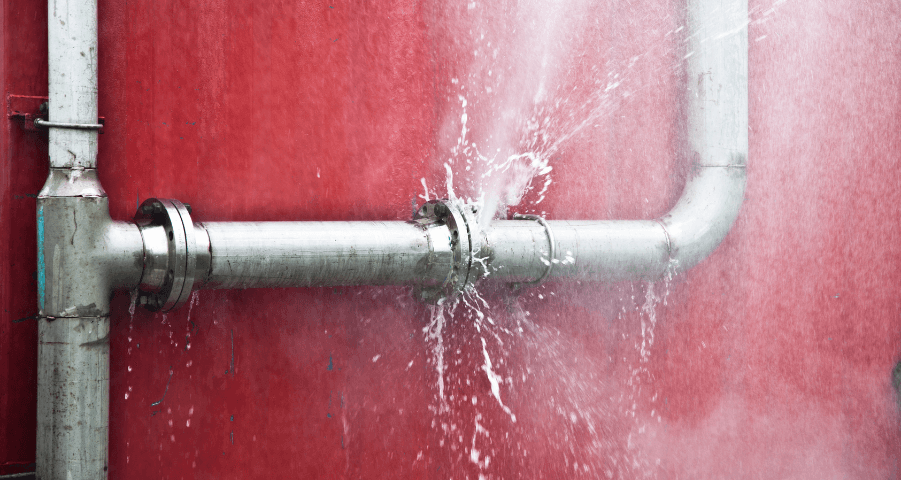Crucial Emergency Plumbing Tips to Apply Until Help Arrives
Crucial Emergency Plumbing Tips to Apply Until Help Arrives
Blog Article
Just how do you really feel on the subject of What to Do While Waiting for an Emergency Plumber?

Plumbing emergencies can strike at any time, creating stress and anxiety and prospective damage to your home. Whether it's a ruptured pipeline, a stopped up drain, or a leaky tap, recognizing exactly how to manage the situation till an expert plumbing arrives can conserve you from more problems. This article gives crucial emergency situation plumbing pointers to assist you minimize damage and regain control throughout a plumbing crisis.
Switch off the Water System
The initial step in any kind of pipes emergency is to shut down the supply of water. For localized concerns, such as a leaking tap or bathroom, turn off the shutoff near the fixture. When it comes to a major leak or ruptured pipe, situate your home's major water shut-off valve and transform it off promptly. Knowing the area of these valves ahead of time can save beneficial time during an emergency situation.
Turn off Your Water Heater
In specific emergencies, such as a ruptured pipe, it's smart to shut off your hot water heater. This prevents overheating or damages to the unit when water stops moving. Turn off the power supply to the water heater (electrical or gas) and let it cool off to avoid prospective hazards.
Briefly Quit a Burst Pipeline
A burst pipe can bring about significant water damages in minutes. To reduce the concern:
Call an expert plumbing technician promptly to resolve the problem permanently.
Have an Emergency Pipes Set
Prepare a standard pipes emergency kit to deal with minor issues effectively. Your kit needs to consist of:
Having these tools available can make a considerable distinction in your capability to take care of emergency situations.
Unclog Drains Pipes Securely.
A clogged up drainpipe can be an irritating and unpleasant concern. Below's just how to tackle it:.
If these approaches do not function, prevent using too much pressure, as it might intensify the blockage.
Take Care Of Overflowing Toilets.
An overruning bathroom can trigger instant mayhem. Right here's what you ought to do:.
Address Little Leaks with Short-lived Fixes.
Tiny leaks can quickly come to be considerable troubles if left untreated. Use these short-lived solutions until expert help shows up:.
While these solutions aren't permanent, they can assist decrease water loss and damage.
Deal With Frozen Piping Carefully.
In colder environments, icy pipes are a typical emergency situation. If you believe a frozen pipe:.
Know When to Call a Specialist.
While quick fixes can aid temporarily, certain plumbing problems call for prompt professional attention. Call a plumbing technician if:.
Without delay speaking to a specialist ensures the issue is solved appropriately and protects against more difficulties.
Protect against More Damages.
Taking fast activity to decrease damages can conserve you money and time in the future. Below's just how:.
Final thought.
Pipes emergency situations can be frustrating, however with the best understanding and tools, you can handle the situation efficiently until help arrives. By turning off the water supply, addressing tiny leakages, and utilizing momentary repairs, you can minimize damage and maintain your home safe. Bear in mind, these pointers are momentary options; always speak with a licensed plumbing professional to take care of the source of the issue. Preparation and quick reasoning are your finest allies in any type of plumbing emergency situation.
8 Helpful Tips for Managing Plumbing Emergencies at Home
If your plumbing system hasn’t failed once, wait for it because almost everyone has a story to tell. Sometimes, it could be simple emergencies such as a leaking pipe, a blocked cistern, or even a big burst pipe. In situations like this, you need to have some handy tips to save you some money and from possible damages.
Take care of minor issues early.
Sometimes, you could have avoided an emergency by taking proactive measures while it was still early. Some major plumbing emergencies can be a result of an ignored minor issue. We recommend that you have items like plumbing tapes and other related items. A plumbing tape can allow you to manage minor leaks before the plumber arrives.
Cut off the water supply.
This tip is essential in almost any type of leakage problem. For problems like minor leakages in the toilet or kitchen, turn off the supply that takes water to the affected pipes. If the leakage is a major pipe, you must shut off the supply valve to the entire building. This will help you avoid flooding your home and neighbors if you share a flat.
Know your plumbing system
Folks typically move into a new apartment without understanding the water supply around the building. This can prove disastrous if a water emergency arises and the plumber is far away. The previous tip will prove useless if you don’t practice this one. More importantly, know where your water shut-off valve is located – you’ll need that knowledge to prevent potential home floods.
Have some common handy tools
There are lots of plumbing emergencies that you can handle without hiring a plumber. That’s why you must keep some tools available always. Some tools that you can use to fix simple plumbing emergencies easily include plumbing tapes, screwdrivers, thread seal tapes, plungers, pliers, tape measures, and rubber gloves.
Insulate your pipes from cold
You’ll save yourself from many plumbing expenses if you protect your water pipes from the cold. This is because of the harmful effects that cold weather can have on your pipes. During winter, your pipes can burst from being overly expected to freezing temperatures. So, make sure insulators are there to keep the pipes working correctly.
Avoid practices that will clog your toilet.
Many people indulge in practices that can damage the plumbing system of the entire building. One of these is when they use their toilet to dispose-off garbage. They flush all kinds of things, such as paper towels, bandages, hairs, female sanitary products, etc., down the toilet. This will block your toilet in the long run, incurring unnecessary expenditures. Dump such waste in the trash instead.
Check your dials regularly.
Sometimes, there could be leakages in your home without noticing them in time. So, constantly monitor your water meter dial. If the dial is reading when there is nobody using water, this is an indicator that there is leaking. Check for leaks immediately. Call a plumber as soon as possible if you can’t find any.
https://www.constructionplacements.com/8-helpful-tips-for-managing-plumbing-emergencies-at-home/

As a keen person who reads about Expert Tips for Emergency Plumbing Repairs, I assumed sharing that excerpt was a smart idea. Sharing is nice. Helping others is fun. Thank you for your time. Please come visit our site back soon.
Show Details Report this page